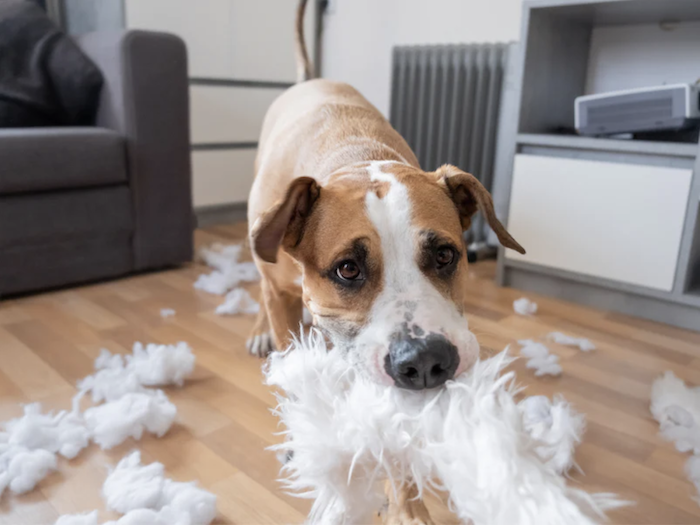Be Careful What You Chew
We all know that our favorite furry friend likes to chew. Many of us have unfortunately experienced our pet chewing on our walls, furniture, or clothes. Maybe they chew on a paw or their toys. Perhaps your dog only chews on bones that are provided. But why does your pet chew? And should they be chewing? If you’re fortunate, you probably haven’t given it very much thought.
Chewing, under the right circumstances, can actually be beneficial for your pet. Not only does it promote metal stimulation, but it can also be a stress reliever. It can help combat boredom and minimize anxiety. Dental chews are great for helping keep your dog or cats teeth cleaned. Young puppies use chewing to relieve pain from incoming teeth and to explore what things are. The key to chewing is choosing a safe chew for your pet. Animal teeth are just like human teeth when it comes to density. They are breakable, so you want to make sure that the chew you choose are not too hard. Veterinarians recommend being able to make an indent in the bone or chew with your fingernail. It is not recommended to give your dog cooked bones or anything that can beak off and cause damage to your pets intestines.
Now that it has been established what is safe to chew, it’s time to establish when it is not safe to chew. Destructive chewing can be brought on by various mental or physical reasons. Is your pet only chewing when they are alone? They might have some separation anxiety. What about if your pet is suddenly chewing on objects around the house? Your four-legged companion may be suffering from boredom or lack of exercise. It is even possible that your pet might just be hungry. No matter the reason, destructive chewing can be prevented with the right resources.
Hopefully, now you feel a bit more at ease about your furry friends chewing. Whether it be a dental chew, bully stick, or a dog-safe bone, Denver Pro Pet Sitting wishes you and your pet a happy, healthy chewing!
Written by Denver Pro Pet Sitter, Justine C.


